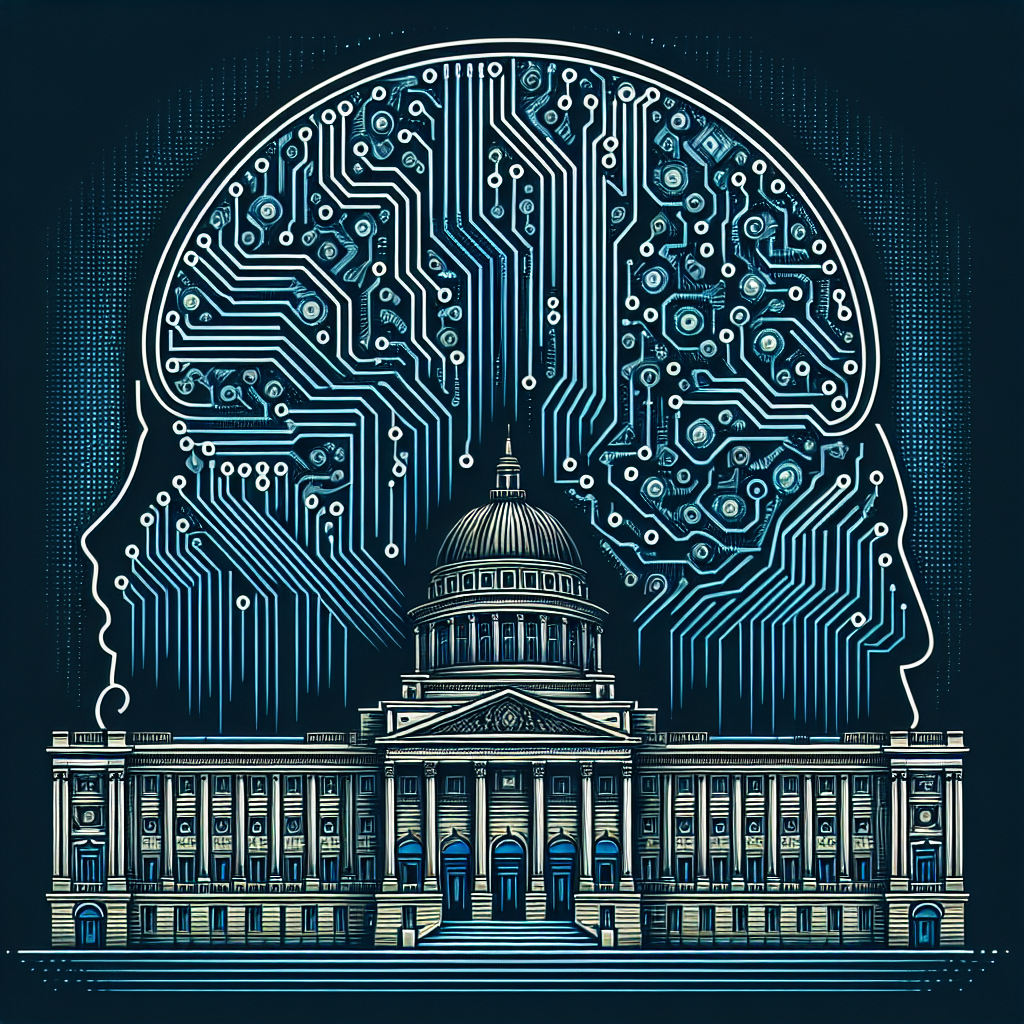Government procurement practices are crucial for ensuring that public funds are spent efficiently and effectively. However, traditional procurement processes can be time-consuming, inefficient, and prone to errors. This is where artificial intelligence (AI) comes in, offering the potential to revolutionize government procurement practices and make them more transparent, cost-effective, and streamlined.
AI has already made significant inroads in the private sector, with businesses using it to automate routine tasks, improve decision-making, and enhance customer service. Now, governments are starting to recognize the potential of AI in transforming their procurement processes. By leveraging AI technologies such as machine learning, natural language processing, and robotic process automation, governments can streamline their procurement processes, reduce costs, and improve the quality of goods and services procured.
One of the key benefits of AI in government procurement is its ability to automate routine tasks, such as data entry, document processing, and contract management. By automating these tasks, governments can free up valuable time and resources, allowing procurement professionals to focus on more strategic activities, such as supplier relationship management and contract negotiation. This not only improves efficiency but also reduces the risk of errors and fraud, leading to greater transparency and accountability in the procurement process.
AI can also help governments make better-informed procurement decisions by analyzing vast amounts of data to identify patterns, trends, and anomalies. By using machine learning algorithms, governments can predict future demand, identify potential cost savings, and assess supplier performance. This enables governments to make more strategic procurement decisions, leading to better value for money and improved outcomes for citizens.
Furthermore, AI can help governments improve the quality of goods and services procured by enabling them to evaluate suppliers based on a wider range of criteria, such as sustainability, diversity, and innovation. By using AI to analyze supplier data and performance metrics, governments can ensure that they are working with the best suppliers who meet their specific needs and requirements. This not only improves the quality of goods and services procured but also promotes fair competition and diversity in the supplier base.
In addition to improving efficiency, transparency, and quality, AI can also help governments reduce costs in their procurement processes. By automating routine tasks and optimizing procurement decisions, governments can lower administrative costs, minimize maverick spending, and negotiate better deals with suppliers. This can lead to significant cost savings for governments and taxpayers, allowing them to allocate resources more effectively to other priority areas.
Despite the numerous benefits of AI in government procurement, there are also challenges and risks that need to be addressed. One of the main concerns is the potential for bias in AI algorithms, which could lead to unfair treatment of suppliers or discrimination against certain groups. Governments need to ensure that their AI systems are transparent, accountable, and free from bias by regularly auditing and monitoring their performance.
Another challenge is the need for skilled professionals who can develop, implement, and manage AI systems in government procurement. Governments need to invest in training and capacity-building to ensure that their procurement professionals have the necessary skills and expertise to effectively leverage AI technologies. This includes understanding how AI works, interpreting the insights generated by AI systems, and making informed decisions based on AI recommendations.
Despite these challenges, the potential of AI in improving government procurement practices is immense. By harnessing the power of AI, governments can transform their procurement processes, making them more efficient, transparent, and cost-effective. This not only benefits governments and taxpayers but also suppliers and citizens who rely on public goods and services. As AI continues to advance, governments need to embrace this technology and leverage its capabilities to drive innovation and improve the way they procure goods and services.
FAQs:
Q: What is AI?
A: AI, or artificial intelligence, refers to the simulation of human intelligence processes by machines, such as learning, reasoning, and problem-solving.
Q: How can AI improve government procurement practices?
A: AI can improve government procurement practices by automating routine tasks, analyzing data to make informed decisions, and evaluating suppliers based on a wider range of criteria.
Q: What are the benefits of AI in government procurement?
A: The benefits of AI in government procurement include improved efficiency, transparency, quality, and cost savings.
Q: What are the challenges of AI in government procurement?
A: Challenges of AI in government procurement include bias in AI algorithms, the need for skilled professionals, and ensuring transparency and accountability in AI systems.
Q: How can governments address the challenges of AI in government procurement?
A: Governments can address the challenges of AI in government procurement by ensuring transparency, accountability, and fairness in AI systems, investing in training and capacity-building for procurement professionals, and regularly auditing and monitoring AI systems.
Q: What is the future of AI in government procurement?
A: The future of AI in government procurement is promising, with governments increasingly adopting AI technologies to streamline their procurement processes, reduce costs, and improve the quality of goods and services procured. As AI continues to advance, governments will need to embrace this technology and leverage its capabilities to drive innovation in government procurement practices.

